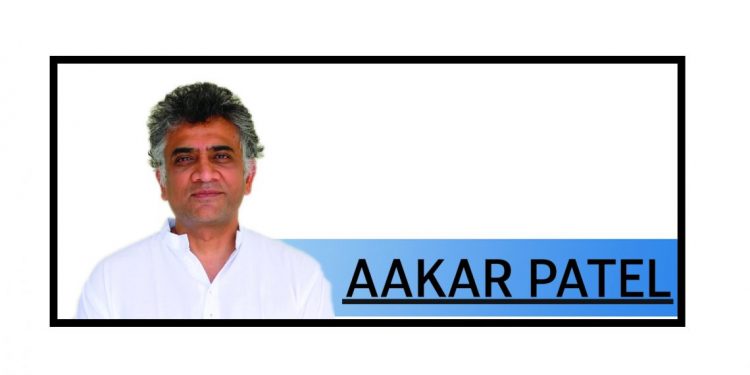Much has been written and will be written about what Manmohan Singh was. Here are a few lines on what he was not. Manmohan Singh was not a representative of New India. He was a leader from the older idea of India. He stressed inclusion and not division. If he brought up religion in his public speeches, it was not because of an attempt to malign and demonise particular groups and rouse the population against them.
To the new adult of New India, 18 years old and voting today but only 10 in 2014 and steeped in a decade of hate, this may come as a surprise but that was the established template of Indian leadership in the past. Manmohan Singh represented its finest aspects.
Singh was not heroic and not given to bombast. He did not refer to himself in the third person in his speeches. He did not wear suits with his name embroidered on them in gold pinstripes. He did not make much of his humble origins and when they came up he did not put himself and his village life in undivided India on some pedestal.
It is true that he did not flaunt his degrees but that was not because he wanted to hide something. Or that his resume contained fabricated material. There exist scholarships named after him at St John’s College in Cambridge University. Nuffield College at Oxford University, where he earned his doctorate, has him on their website. His thesis there was published as a book titled ‘India’s Export Trends and Prospects for Self-Sustained Growth.’
Because he was steeped in learning and was not temperamental he was not inclined to consider deliberately damaging India’s economy. Quite the opposite. He would have been horrified at the idea of intentionally gutting our growth by, for example, removing all currency from circulation on a whim. Gratuitously putting his people through torture was beyond him and he was incapable of actions that forced millions to migrate because of a midnight lockdown.
He was not decisive and not impulsive, which is a synonym for decisiveness — the ability to conclude without deliberation. He was thoughtful and intellectually deep. He was not ignorant of the way in which the world works. In March 2009, the Financial Times sent three editors to interview him. Their first question, which remains relevant today, was: “Do you agree with China on the failures of the global monetary regime and the case for a new reserve asset in place of the dollar?”
His reply, which remains relevant today, was: “Well these are not new issues. I was associated with the first committee of 20 with Paul Volcker in the 1970s. These issues have been discussed many times – moving to a neutral reserve asset. But there are complicated issues. The power to issue money is an indication of the power of a country and no one gives up power voluntarily.”
Manmohan Singh was unable to put party before nation, unlike his predecessor. Consider this report published by a weekly magazine on 29 April 2002, titled ‘How Vajpayee ended up as the Hindutva choir boy’. It reads: “No sooner had party President Jana Krishnamurthy completed his presidential address than Modi got up and said in his sombre, chaste Hindi: ‘Adhyakshji, I want to speak on Gujarat … From the party’s point of view, this is a grave issue. There is a need for a free and frank discussion. To enable this I wish to place my resignation before this body. It is time we decided what direction the party and the country should take from this point onwards.’ He didn’t need to say more. With one stroke, the Gujarat chief minister had seized the initiative. He galvanised his supporters who now stood up to be counted. Food Minister Shanta Kumar, who had spoken out against Modi and the VHP’s extremes, found himself being rebuked and facing a disciplinary committee. He was forced to apologise. Even if the prime minister may have thought Modi’s resignation prudent for the sake of both his personal image and the unity of the coalition, there was absolutely no way he could go against the ferocity of the pro-Modi sentiment. He tried shelving the issue for a day but even this was resisted.”
This is something for New India to consider when being told today that Singh was weak and unable to resist pressure. How will Singh be remembered by history? Quite warmly, one suspects.
In January 1949, a year after Gandhi had been murdered, George Orwell wrote an essay titled ‘Reflections on Gandhi’. He ends it with these lines.
“But if, by 1945, there had grown up in Britain a large body of opinion sympathetic to Indian independence, how far was this due to Gandhi’s personal influence? And if, as may happen, India and Britain finally settle down into a decent and friendly relationship, will this be partly because Gandhi, by keeping up his struggle obstinately and without hatred, disinfected the political air? That one even thinks of asking such questions indicates his stature. One may feel, as I do, a sort of aesthetic distaste for Gandhi, one may reject the claims of sainthood made on his behalf (he never made any such claim himself, by the way), one may also reject sainthood as an ideal and therefore feel that Gandhi’s basic aims were anti-human and reactionary: but regarded simply as a politician, and compared with the other leading political figures of our time, how clean a smell he has managed to leave behind!”
By Aakar Patel






































